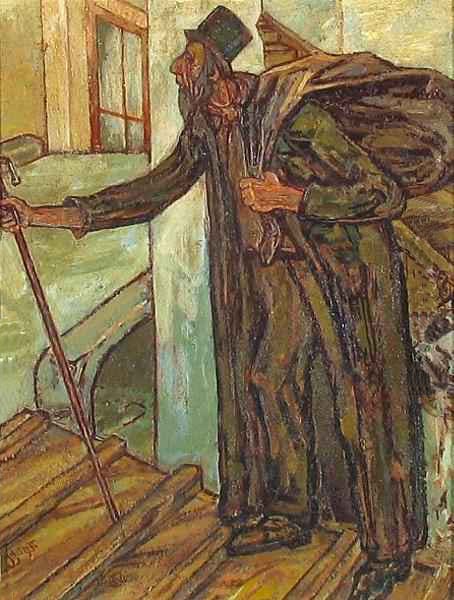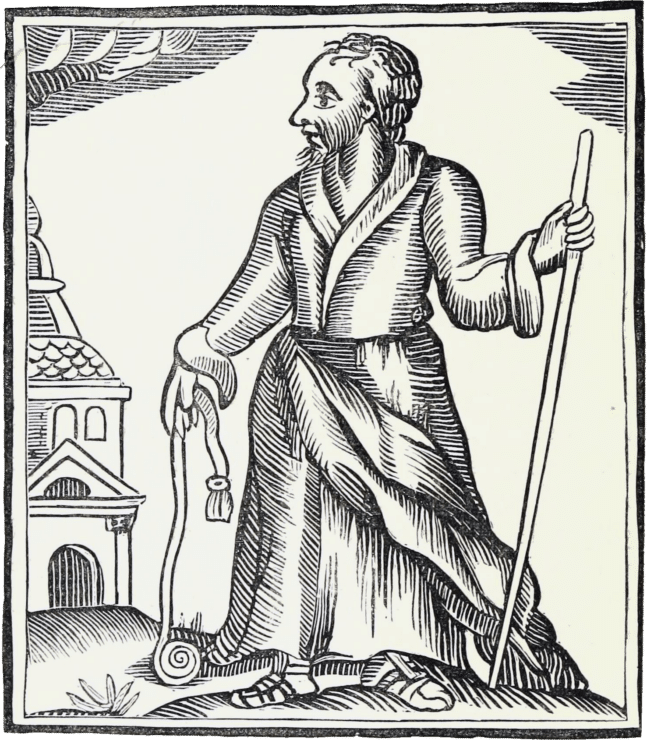< Return to all Wordsworth poems
Song for the Wandering Jew
Through the torrents from their fountains
Roar down many a craggy steep,
Yet they find among the mountains
Resting-places calm and deep.
Though, as if with eagle pinion
O’er the rocks the Chamois roam,
Yet he has some small dominion
Where he feels himself at home.
If on windy days the Raven
Gambol like a dancing skiff,
Not the less he loves his haven
In the bosom of the cliff.
Though the Sea-horse in the ocean
Own no dear domestic cave;
Yet he slumbers without motion
On the calm and silent wave.
Day and night my toils redouble!
Never nearer to the goal;
Never—never does the trouble
Of the Wanderer leave my soul.
—William Wordsworth
Enjoy Artistic Representations of “Song for the Wandering Jew” by William Wordsworth

The Wandering Jew by Joseph Jacob Isaacson ca. 1900.

Illustration from a 18th century chapbook reproduced in Chap-books of the eighteenth century by John Ashton (1834).
Listen to this Reading of “Song for the Wandering Jew”
Listen to this Musical Interpretation of “Song for the Wandering Jew” by William Wordsworth
About William Wordsworth
William Wordsworth, an English poet born in 1770, is credited with having a strong impact on the poetry of his time. He worked with Samuel Taylor Coleridge to publish a collection, Lyrical Ballads, which includes poems believed to be among the most influential in Western literature. With this publication, the two helped initiate English literature’s Romantic Age.

Jerwood Centre at the Wordsworth Trust in Grasmere
Wordsworth also worked to increase the accessibility of poetry, encouraging the use of more common language, and promoting the virtues of lyric poetry.
While in college, Wordsworth went on a walking tour of England and lived for a time in France, where he was greatly impacted by the French Revolution. His earliest work was published in 1793.
His most famous work, The Prelude, was published by his widow in 1850. He worked on the semi-autobiographical poem throughout much of his life, never quite satisfied to publish it.
Wordsworth served as England’s Poet Laureate from 1843 until he died in 1850.
That’s it for Song for the Wandering Jew!